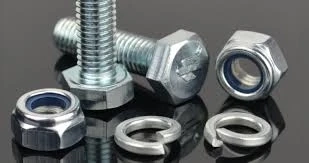Advantages and Applications of Stainless Steel 310S Nuts
Stainless Steel 310S nuts are highly corrosion-resistant fasteners used for connecting two pieces. They are made from a combination of iron and chromium, which gives ...


Stainless Steel 310S nuts are highly corrosion-resistant fasteners used for connecting two pieces. They are made from a combination of iron and chromium, which gives ...

